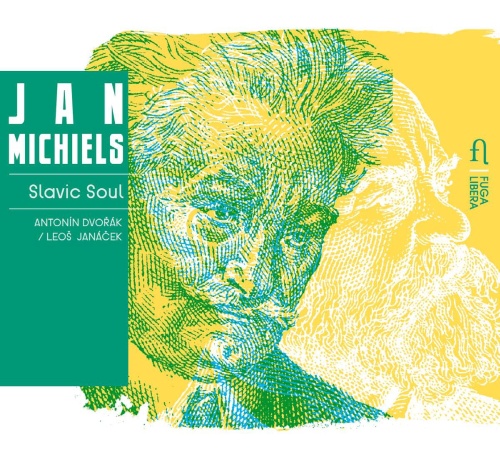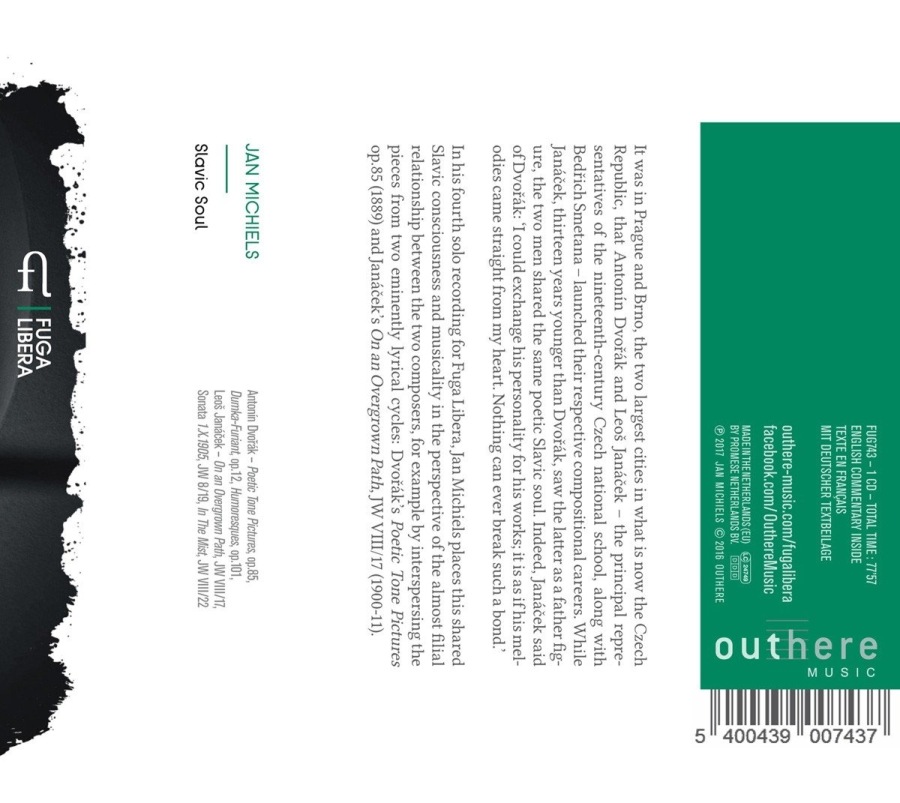
kompozytor
Janacek, Leos;
Dvorak, Antonin
tytuł
Slavic Soul - Dvorak & Janacek
wykonawcy
Michiels, Jan
nr katalogowy
FUG 743
opis
It was in Prague and Brno, the two largest cities in what is now the Czech Republic, that Antonín Dvořák and Leoš Janáček – the principal representatives of the nineteenth-century Czech national school, along with Bedřich Smetana – launched their respective compositional careers. While Janáček, thirteen years younger than Dvořák, saw the latter as a father figure, the two men shared the same poetic Slavic soul. Indeed, Janáček said of Dvořák: ‘I could exchange his personality for his works; it is as if his melodies came straight from my heart. Nothing can ever break such a bond.’ In his fourth solo recording for Fuga Libera, Jan Michiels places this shared Slavic consciousness and musicality in the perspective of the almost filial relationship between the two composers, for example by interspersing the pieces from two eminently lyrical cycles: Dvořák’s Poetic Tone Pictures op.85 (1889) and Janáček’s On an Overgrown Path, JW VIII/17 (1900-11).
nośnik
CD
gatunek
Muzyka klasyczna
producent
Fuga Libera
data wydania
20-06-2017
EAN / kod kreskowy
5400439007437

(Produkt nie został jeszcze oceniony)
cena 79,00 zł
lubProdukt na zamówienie
Wysyłka ustalana indywidualnie.
Darmowa wysyłka dla zamówień powyżej 300 zł!
Darmowy kurier dla zamówień powyżej 500 zł!
sprawdź koszty wysyłki



































